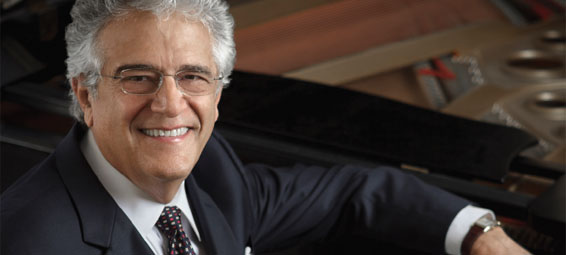The 2010 documentary film A Surprise in Texas, about the 2009 Van Cliburn International Piano Competition, captures a scene in the jury room. There’s hand wringing, hushed conversations, and world music experts hammering out the tiniest technicalities of a performance. “When you are sitting in the primary competition jury, there is such a responsibility one feels that you can’t imagine,” says John Giordano, who has been jury chair of one of the world’s premier piano competitions since 1973. “You’re affecting the lives of these young people, and you are hoping to bring a major artist on the stage. The difference is so close when it comes to those people.”
This year, Giordano can relax. He’s still sitting as the chair of the jury at the Van Cliburn competition, but 2011 is a year for the amateur competition, which, like the professional competition, takes place every four years; the two competitions alternate every two years.
“The pressure is much different,”he says. “It is serious in the amateur competition, too, but it is not the same atmosphere. Yes, we are trying to choose a winner, but we are also trying to help promote great music and the love of great music. It’s just different.”
While the storied Van Cliburn competition dates back to 1962, the amateur competition began in 1999 as a way to celebrate serious musicians whose lives have taken their careers down paths outside the industry. In many cases, they have established extraordinary careers outside of music, but they have maintained a deep commitment to their piano playing. In this way, the competition becomes more than just a series of performances onstage; it’s an exposition of undying passion for music.
“We feel like this is so important for our industry,” Giordano says. “It is important for classical music, and, subsequently, I think it is important for our society.”
Like most classical music evangelists, Giordano’s love is borne of his own experience. Growing up in Pennsylvania, in a part of the country between Buffalo, New York, and Erie, Pennsylvania, he was exposed to classical music from a young age. “My grandparents loved music, and they loved opera, especially on my Italian side,” he says. “And my grandfather thought he was a great tenor. He would go around the house and burst into song.”
But it was Giordano’s cousin who got him hooked. “My cousin was my idol,” he says. “He played jazz, tenor saxophone, and worked his way through his doctorate. What he did, I had to do.” Giordano’s father also played guitar and he taught his son to learn how to play by ear. Then, when Giordano was in school, he joined school bands, played in the school orchestra. He was exposed to classical music at an early age and through family, Giordano explains, but continual engagement with all kinds of music seeded the lifelong love. And once you start to love classical music, Giordano says, the very thing that pushes so many away—its diffi culty—becomes the primary attraction.
“I fell in love with classical music because there is so much there. It is so complex,” he says.
Throughout his long career, which included a stint as the music director of the Fort Worth Symphony, Giordano has worked to expose young audiences to music. He says he has never performed a student concert in which the students didn’t love the orchestra by the time the performance ended. And he believes this year’s Van Cliburn Amateur Competition takes on new signifi cance in light of the political battles being waged over school budgets. The amateur performers, he says, demonstrate how musical talent develops minds and habits that lead to success in life—on and off the stage.
“When you play music, your mind is not on yourself,” he says. “You’re involved in what you are doing, and you don’t think about yourself. You get involved in the music itself. And there is a soothing, kind of healing effect in being involved with performing.” It is more than just focus, discipline, and self-management. It is about educating members of society who are sensitive, Giordano says.
Giordano has been in music education for a long time, conducting concerts with public school orchestras at venues such as Carnegie Hall in the 1970s. But with the Cliburn Amateur Competition, the argument is made not through statistics but through public performances. They are serious musicians, Giordano explains, and while technical mastery might separate them from the professionals who compete in the primary competition, the amateurs possess something else.
“You can see the passion they have for what they are doing,” Giordano says. “It is like there are some instances where one feels sometimes at a performance of the tier-two orchestras around the world. Sometimes these community orchestras play with so much more passion because they are not full-time musicians. But you can feel their love and dedication.”
Photo: John Giordano is back to chair the jury of the Van Cliburn amateur piano competition (Credit: Adam Fish).





